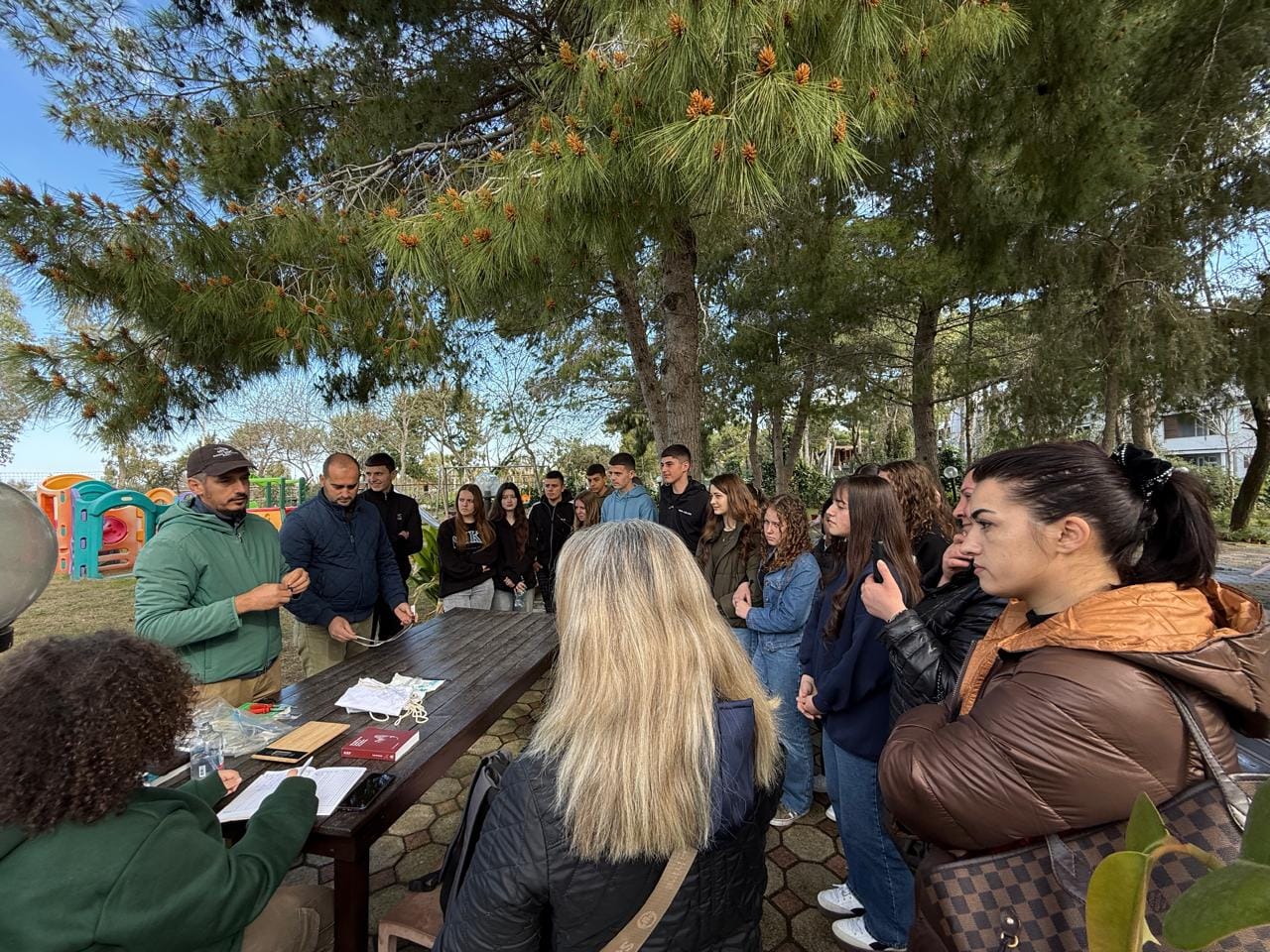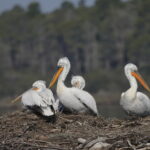The Migratory Bird Ringing Camp was held from March 17–21, 2025, in Divjakë-Karavasta National Park. This initiative aimed to monitor birds that use the park’s diverse habitats—such as sand dunes and pine forests—as stopover sites during their migration.
Methodology
A total of five 12-meter mist nets (60 meters in total) were set up and monitored daily from 06:00 to 17:00. Checks occurred every 30 to 60 minutes, depending on bird activity. Nets were placed in a mix of pine forest and sand dune habitats with shrub vegetation—essential for providing food and shelter to migratory birds during spring.
Species Ringed
By the end of the camp, 42 birds from 14 different species were successfully ringed. The most commonly ringed species was the Eurasian Blackcap (Sylvia atricapilla), with 17 individuals, accounting for more than 40% of the total.
- European Robin (Erithacus rubecula)
- Long-tailed Tit (Aegithalos caudatus)
- Song Thrush (Turdus philomelos)
- Subalpine Warbler (Curruca cantillans)
These captures emphasize the park’s significance as a migratory bird stopover.
Migration Patterns and Importance
The Eurasian Blackcap is a short-distance migrant in Albania, wintering in lowlands and moving to mountain areas in spring. Additionally, Divjakë-Karavasta serves as a temporary stopover for birds migrating from Africa to northern Europe.
Data Collection
All birds were ringed with uniquely coded metal rings registered in Albania. Standard morphometric data were collected:
- Wing length
- Body weight
- Fat score
- Pectoral muscle condition
These indicators help assess bird health and readiness during migration.
Conservation Significance
This ringing camp is part of ongoing national efforts to understand and protect bird migration routes. It highlights Divjakë-Karavasta National Park’s vital role in preserving Albania’s biodiversity. The activity “Open Hour in Nature” was organized with the “Mihal Nako” Fier-Seman school, students participated in a bird ringing camp in the Divjakë-Karavasta National Park, in collaboration with experts from the Albanian Ornithological Society AOS and the Regional Administration of Protected Areas Fier County-AdZM Fier. The goal was to raise awareness about the importance of biodiversity and bird protection. Students participated in a bird ringing session, where they learned about the techniques and importance of this process for monitoring and preserving birds. Agence Française de Développement (AFD).
Project objectives
PROZHUM aims to enhance the capacity and impact of civil society organizations for wetland conservation in the Southern and Eastern Mediterranean, develop and share knowledge on a pilot restoration wetland effort, and facilitate understanding among decision makers of the ecological state of wetlands. The wide-ranging activities of the project rely on the existing networks of the Mediterranean Waterbirds Network, the Mediterranean Alliance for Wetlands, and the Mediterranean Wetlands Observatory. To improve the technical and organizational skills of the partner organizations, the PROZHUM project supports 26 wetland management and protection projects in 10 countries.
Cofinanceurs :
Prince Albert 2 of Monaco Foundation
PRIMA Foundation (Spain ; OurMed program)
Horizon Europe program (European Union)
Tour du Valat






